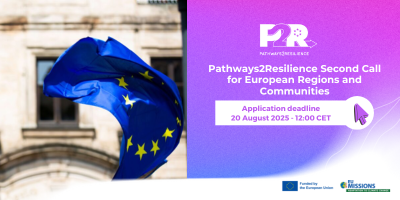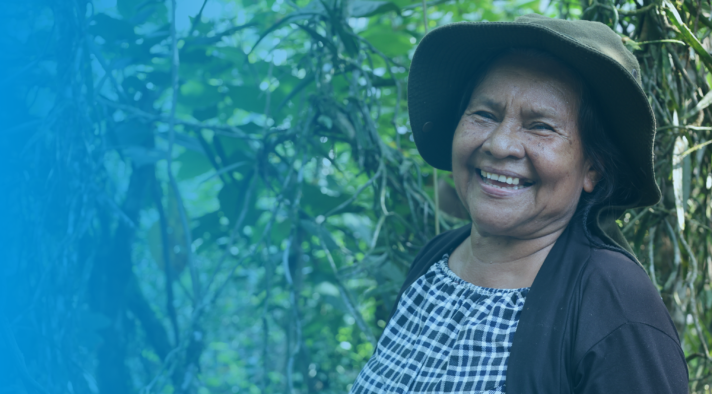Message by Secretary General, Iñaki Susaeta:
In light of the COVID-19 outbreak and the current lockdown situation in many regions and countries worldwide, Regions4 Secretariat would like to share a message of solidarity with the most affected by the pandemic, calling on individual and collective responsibility and collaboration to face this difficult situation.
Regions4 highly commends the efforts of all regional and subnational governments working hard alongside the central and local authorities to combat the COVID-19 pandemic. Their role as intermediaries between the national and local levels of government; their unique and shared competences on planning, legislation, and policy-making; and their closeness to citizens are more relevant than ever in order to ensure the collection of bottom-up information that will feed the national and global decisions for action in this emergency context.
Regions4 member governments are leading by example with the implementation of measures to protect their citizens:
- Azuay prepared 50,000 food baskets and provided an additional 45 tons of regionally produced products to fight hunger and provide help to those most in need in every corner of the province. Furthermore, the prefecture has worked on a large-scale plan to clean the streets in Azuay’s neighbourhoods and ensure hygiene in the region.
- Basque Country has worked on a set of measures to ensure the capacity of the health system in addition to other services to cover basic needs, support most vulnerable collectives, and back up the business sector. In addition, the region is helping Basque citizens to return home and supporting those living and working abroad that may be facing financial difficulties as a result of the pandemic through the Network of centres to promote Basque culture. To ensure the protection of women, the region has also published a message translated to 6 languages to ensure domestic violence victims are properly assisted.
- Catalonia has announced the mobilisation of retired medical professionals, recent graduates, and final-year students to bolster the health workforce and the reduction of water rates for domestic users by 50% for two months. The Advisory Council for Sustainable Development of Catalonia has called to overcome the effects of COVID-19 through sustainability policies using the 17 SDGs as a compass to guide and overcome the crisis. Read the full statement here.
- Centre-Nord has dedicated a budget of over 7 million to assist displaced persons in the region, especially women and children, providing food (10 tons of corn, 6 tons of rice and 2200 liters of oil) and materials (220 mats for two people each, 367 plastic buckets and a large amount of hygienic cotton). Additionally, the government is working to equip health facilities in the region with protective materials and has signed an agreement with the Embassy of the People’s Republic of China for which the region has received a donation of 20,000 masks and 5,000 surgical gloves.
- Jalisco has implemented several information measures such as the development of a mobile app that help citizens learn about measures for individual and collective protection offering instant responses to citizen questions, and has launched the strategy “Jalisco without Hunger, Together for Food”, to provide food for homeless people, families living in highly marginalised areas, people with disabilities and the elderly.
- La Réunion has created a Regional Support Plan to implement extraordinary measures to reorganise services and respond to the situation. These measures include exceptional economic aid to support businesses and independent professionals, aid for food banks and associations, as well as a flexible system for the use of already purchased regional transport tickets.
- Lombardy has expanded its hospitals, medical staff, and emergency services to assist more people, and has proposed the central government a strategy with specific measures to support the agri-food sector given the economic losses. The region has allocated €3 billion for investments in public works and infrastructures throughout the territory. (Read Regions4 interview with Minister Cattaneo for additional information.)
- São Paulo created the State Contingency Centre to monitor and coordinate actions against the spread of the new coronavirus, including several information tools such as a Telegram group, the publication of different information guides on health and communications advice, including a section to identify fake news regarding the pandemic that can misinform citizens. Additionally, the state has implemented social measures to ensure access to water, electricity, and gas for most vulnerable groups, as well as the distribution of 1.2 million baskets with personal hygiene products made available in the next four months.
- Scotland is aligning to the UK Government Coronavirus Action Plan with specific actions for their region, such as the creation of Scottish Resilience Partnerships, groups that include representatives from police, fire, ambulance, local authorities, and health boards, among other key partners such as the utilities and social care sectors. The SRP acts as a strategic policy forum for resilience issues, providing collective assurance to Ministers, and advising the resilience community.
- Québec has declared the health emergency throughout the territory enabling measures such as concluding the necessary contracts to protect the health of the population or offering financial support for students, workers in isolation, and businesses experiencing difficulties.
- Wales has implemented a large prevention campaign to protect citizens that are most vulnerable to coronavirus by sending shielding letters with indications to stay at home and providing a network of support with local authorities, major supermarkets, and health practitioners (GPs) involved. Additionally, Wales has launched a campaign to support jobs, skills, and financial support of citizens during the pandemic, and has implemented emergency legislation to protect renters and landlords affected by COVID-19.
As a Network of and for regional governments, we commit to continue to work to widely disseminate their leadership and actions to protect our biodiversity, our citizens and our territories, guaranteeing sustainable living for all.
Regions4 will remain operational with the Secretariat working remotely to inform on the most relevant global processes and updates in the international events on biodiversity, climate change and sustainable development.
Stay up to date with the latest actions from regional governments in response to the global crisis through our Twitter @Regions4SD
NOTE: This article was last updated on 29 April 2020.



